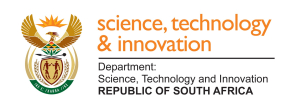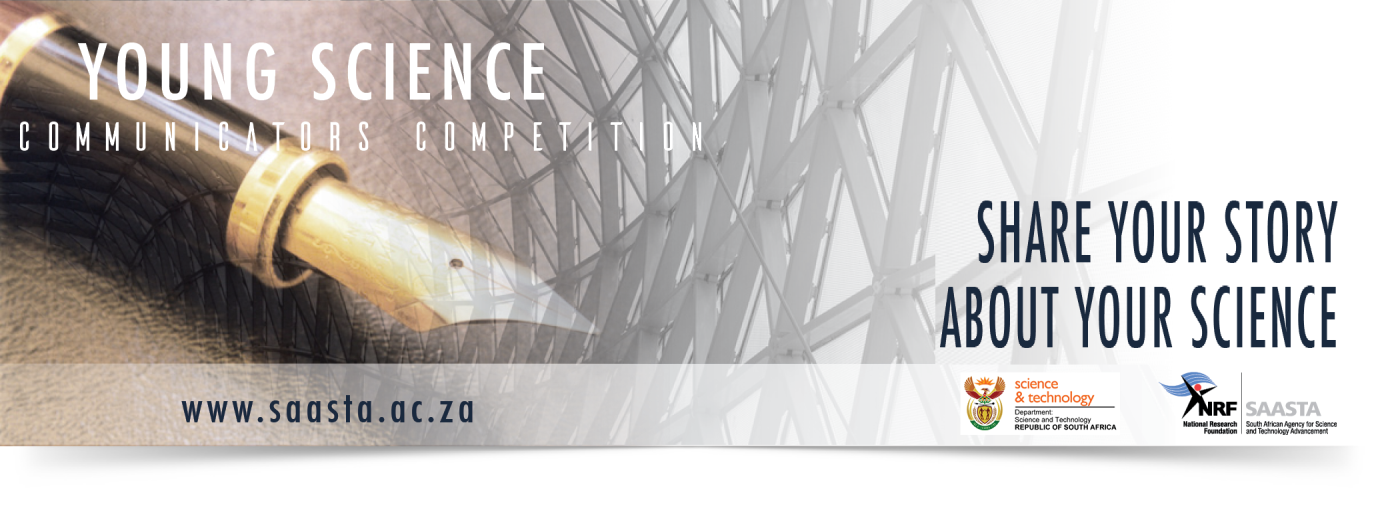
Tell your science story! The Young Science Communicator’s Competition challenges you as a young scientist to tell your science story in a captivating, informative and interesting way.
The National Research Foundation (NRF) and the South African Council for Natural Scientific Professions (SACNASP) invite you to participate in the 2022 edition of the Young Science Communicator’s Competition.
This year we focus on the natural sciences, under the theme of the “International Year of Basic Sciences for Sustainable Development.”
The 2022 International Year of Basic Sciences for Sustainable Development recognizes that basic sciences are vital for sustainable development and to improve the quality of life for everyone. Find out more here: www.unesco.org/en/year-basic-sciences
To enter, you need to be:
• Under the age of 35 (as of 1 January 2022)
• Registered as a Natural Scientist, or as a student with SACNASP (visit SACNASP at student enrolment)
If you meet these criteria, read more about the competition details for 2022
Overview
The Young Science Communicator’s Competition (YSCC) specifically challenges young scientists and researchers between the ages of 18 and 35 to communicate their world to a larger audience beyond their scientific community.
Scientists are by nature passionate people. This can be reflected in the way stories are told and communicated. You, the scientist, can engage and excite your community about your science. You can connect and show your science is relevant to people in their everyday lives.
The number of entries received for the competition shows that many young scientists are passionate about communicating. In line with SAASTA’s purpose of developing science communication skills, the feedback from the judges for each entry is made available – to encourage the young scientists to develop their skills and to take their passion for communication further.
This competition alternates biennially with the SA Science Lens competition, which awards the use of photography as a mode of communicating with and engaging audiences on science and technology.
SAASTA is also the national partner and major sponsor of the FameLab competition in South Africa, which awards science communication through the art of public speaking.
Categories
Prizes
- R 5 000 to the winner and R 2 500 to the runner up of each category (sponsored by SACNASP)
- Winners and runner up per category: a practical experience with community newspaper/radio station (arranged by SAASTA)
- Winner of each category: trip to NRF research facility (determined in consultation with and arranged by SAASTA)
How to enter?
- Make sure you are eligible (see above)
- Send us your original communication pieces on any field of practice here . Ensure your piece shows how basic sciences support any one or more of the UN Sustainable Development Goals.
- Click HERE to enter online
- E-Mail: sciencecommunicators@saasta.ac.za if you experience any problems with the registration form
- Read and sign the competition rules.
- Submit a separate entry form for each entry. Any one person may not enter more than three communication pieces per category.
- Entries close on 31 October 2022.
- Click HERE to read the Rules and Regulations.
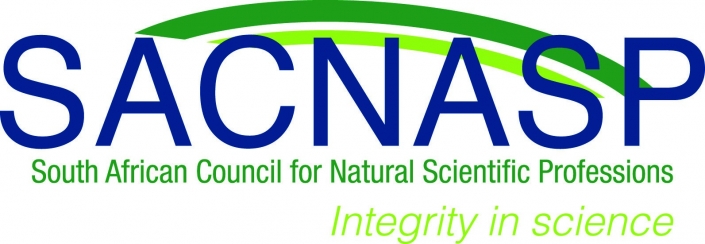
Applications are now open for the 2023 online short course in science communication on offer at Stellenbosch University, South Africa. More than 400 participants from across Africa and beyond have successfully completed this course since 2015.
Over the course of six modules in six weeks, we explore theory and practice in science communication and public engagement with science, and get to grips with key challenges and trends in these fields. The course provides ample opportunities for professional development and linkages to everyday life and work, but also encourages critical reflection. Completing this course could also be a stepping-stone to further postgraduate studies in fields related to ‘science and society’.
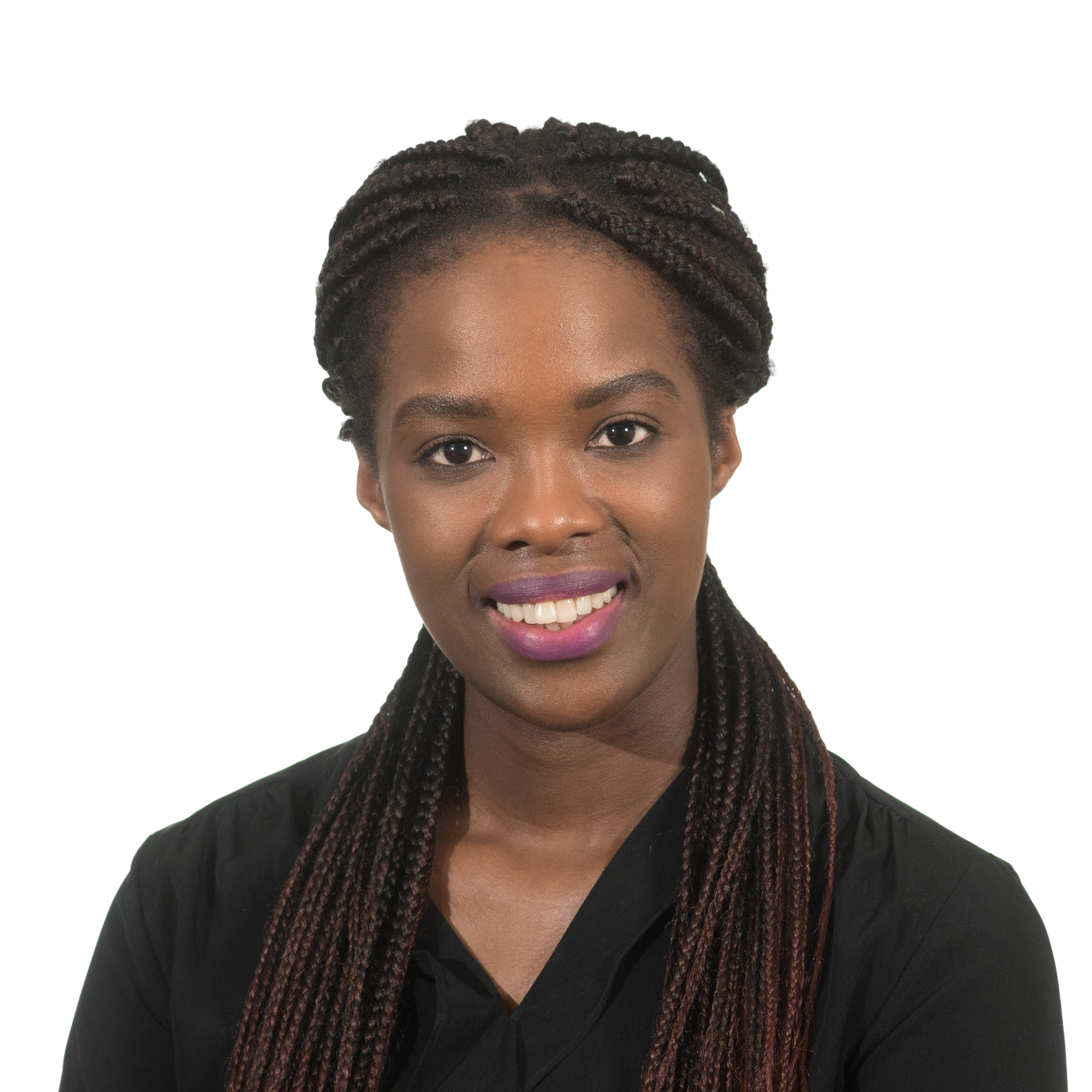
Ms. Lithakazi Masilela
Project Coordinator
Email : sciencecommunicators@saasta.ac.za
Call : (012) 392 9300
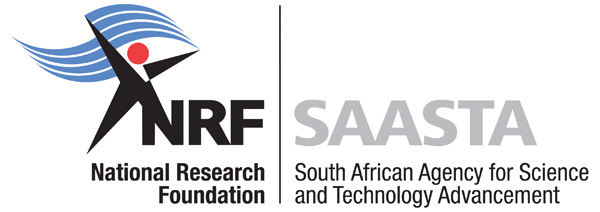
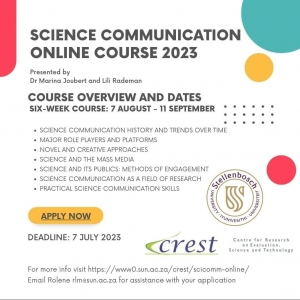
 The South Africa Agency for Science and Technology Advancement (SAASTA) is a business unit of the
The South Africa Agency for Science and Technology Advancement (SAASTA) is a business unit of the 